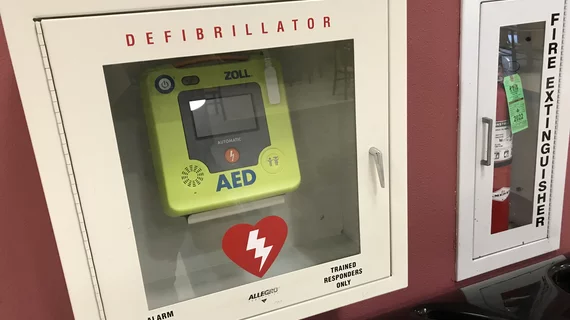‘A significant step forward’: Advocates cheer as heart health bill passes Senate
The U.S. Senate has unanimously passed the HEARTS Act, HR.6829, a bipartisan bill designed to improve cardiomyopathy education and awareness while getting more automated external defibrillators (AEDs) in schools. The bill was already passed by the U.S. House of Representatives, meaning it is now headed to President Biden’s desk to be signed into law.
The HEARTS Act was inspired by the personal experiences of NFL player Damar Hamlin, who went into cardiac arrest live on television during a game in January 2023. Hamlin then used the attention to promote the importance of heart health, AED access and other key healthcare issues as he worked to bounce back from the incident and return to the field.
The American College of Cardiology (ACC), American Heart Association and other U.S. medical societies have been pushing Congress to pass the HEARTS Act all year. In fact, the ACC partnered with the Smart Heart Sports Coalition to develop a detailed strategy aimed at pushing the bill forward.
“When Damar Hamlin collapsed on the field nearly two years ago, everything had to align perfectly for him to survive and fully recover—including quick access to an AED and CPR,” ACC President Cathleen Biga, MSN, said in a statement. “He was fortunate, but many others are not as lucky. That’s why the HEARTS Act is so important. Passage of this law secures funding for cardiomyopathy awareness and expands access to AEDs and lifesaving training in schools. The ACC is proud to have contributed through the Smart Heart Sports Coalition to make this legislation a reality. While more work remains to prevent sudden cardiac death, this is a significant step forward."
U.S. Senate Majority Leader Chuck Schumer, who worked extensively on developing and promoting the HEARTS Act, also issued a statement celebrating the news.
“I’m proud to announce, after months of working with Damar Hamlin and the Buffalo Bills, the Senate has just passed the lifesaving HEARTS Act to put more AEDs in schools across America—like the one that saved Damar’s life,” Schumer said. “Damar and I formed the perfect team, bringing together teachers, healthcare leaders and athletes to make sure every student has access to the kind of life-saving care he did. This legislation goes beyond the field and its impacts will stretch thousands of miles outside Buffalo to help millions of kids.”
Click here for additional details from Congress about the HEARTS Act.


